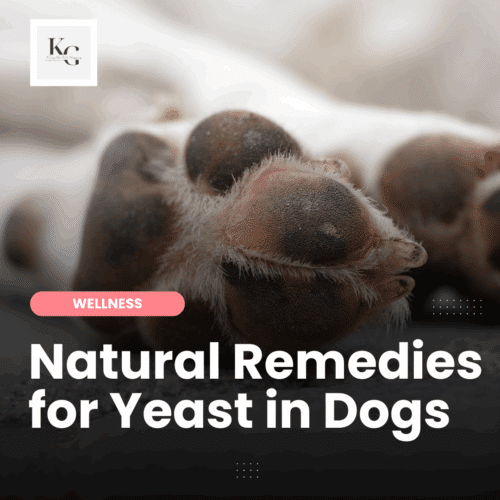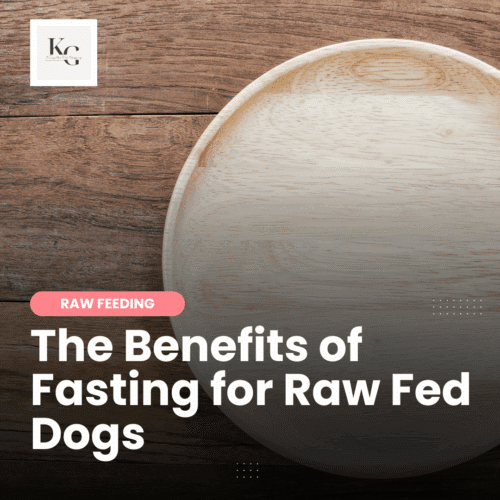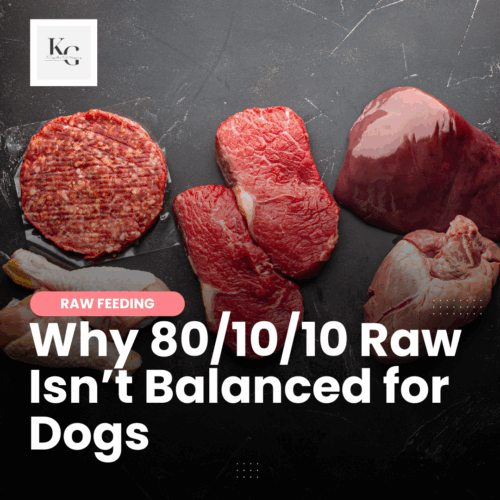Keep the Tail Wagging is supported by pet parents. I occasionally earn a commission (at no additional cost to you) when you click through an affiliate link to one of my favorite products. Thank you for your support. Read More
There are several recipes for dog food and treats that list “whitefish” as an ingredient, and I never questioned this; I thought there was a fish called “whitefish.” Ruby of Real Dog Box informed me whitefish is a term used to describe fish with light flesh. When it comes to dog food, whitefish is frequently utilized for the following reasons…
Why Whitefish is Used in Dog Food and Treats
HIGH-QUALITY PROTEINS: Whitefish provides a high-quality protein source, which is essential for muscle development, tissue repair, and overall growth in dogs.
OMEGA-3 FATTY ACIDS: There are claims that whitefish are rich in omega-3 fatty acids, such as EPA and DHA. These fatty acids have numerous health benefits, including reducing inflammation, supporting brain function, improving joint health, and promoting healthy skin and coat. However, I found several of the fish species that fall under the “whitefish” umbrella are low in Omega-3 fatty acids.
VITAMINS AND MINERALS: Whitefish contains various vitamins and minerals, including B vitamins, selenium, potassium, and phosphorus, contributing to overall health and well-being in dogs.
Below are some of the most commonly used white fish species in dog food, along with their sources and advantages:
Cod
- Cod is sourced from cold, deep waters such as the North Atlantic.
- Cod is low in fat, high in protein, and provides essential nutrients like vitamin B12 and selenium.
Haddock
- Haddock is sourced from the North Atlantic and is known for its mild flavor and firm texture.
- Haddock is a rich source of high-quality protein, vitamins, and minerals, including vitamin B6, phosphorus, and niacin.
- Feeding haddock can contribute to muscle development and overall health in dogs.
Pollock
- Pollock is a lean fish that provides high-quality protein and nutrients such as selenium, vitamin B12, and potassium.
- Pollock is also a good source of omega-3 fatty acids, supporting a dog's immune system, heart health, and joint function.
Flounder
- Flounder is a flatfish found in both freshwater and saltwater.
- Flounder is a lean, white fish with a delicate flavor.
- Flounder is a good source of protein, vitamins D and B12, and beneficial minerals like potassium and magnesium.
- Feeding flounder can support muscle growth, healthy skin and coat, and overall vitality in dogs.
Is Whitefish a High-Quality Protein?
Whitefish is a great protein for dogs that struggle with common proteins like chicken and beef. But are we dealing with whole fish or the by-product of the human food chain (bones, head, skin)? Sadly, many packages aren't going to tell us what part of the fish they're using. I was pleased to learn that the head of a fish is actually more nutritious and beneficial for my dogs than its body. This is due to the abundance of vitamins, minerals, and healthy fats contained within the head.
Although whitefish is an excellent protein; sourcing will determine if it's high-quality.
Is Whitefish High in Omega-3 Fatty Acids?
Omega-3 fatty acids are one of the benefits of pet food and treats with fish as the main protein. Many fish that fall under the “whitefish” label don't offer enough Omega-3s to meet a dog's daily nutritional value; feeding a whitefish recipe doesn't preclude raw feeders from adding other Omega-3 fatty acids to the bowl.
Omega-3 Dosing Guidelines
Dr. Catherine Lennox's article for Today's Veterinary Practices states that common dosing guidelines are “50 to 75 mg EPA + DHA (combined) per kg body weight.” For those of us using pounds, divide the number of pounds by 2.2 to get the number of kilograms.
For a 65 lb dog (the average weight of my dogs), the Omega-3 requirement is between 1,475 mg and 2,213 mg:
- 65 lb dog / 2.2 = 29.5 kg
- 29.5 x 50 = 1,475 mg EPA + DHA
- 29.5 x 75 = 2,213 mg EPA + DHA
Omega-3 Fatty Acids in Whitefish
Whitefish is lower in Omega-3 fatty acids than common fatty fish like salmon, sardines, and mackerel but rich in various vitamins. My favorite fish to feed my dogs are:
- Atlantic Mackerel
- Wild Caught Salmon
- Herring
- Sardines
Other Sources of Omega-3 Fatty Acids
Other sources of Omega-3 fatty acids include:
- mussels
- oysters
- pasture-raised chicken eggs
- meats and dairy from grass-fed animals
- chia and hemp seeds
Is Whitefish Rich in Vitamins and Minerals?
Whenever a brand tells me that they use an ingredient because it's rich in something, it's nice to look into the claims to learn which vitamins and minerals are being added to the bowl. In this case, whitefish is rich in B vitamins.
- Cod is rich in B12, niacin, phosphorus, and selenium.
- Haddock is high in B vitamins, magnesium, and potassium.
- Pollock is rich in B12, phosphorus, and selenium.
- Flounder is rich in B12.
Benefits of B Vitamins
B vitamins are a group of water-soluble vitamins that play essential roles in various physiological functions within the body. There are eight distinct B vitamins, each with its own specific functions and health benefits. The B vitamins include:
- Thiamin (B1): Supports energy metabolism, nerve function, and carbohydrate metabolism.
- Riboflavin (B2): Essential for energy production, cell growth, and the metabolism of fats, carbohydrates, and proteins.
- Niacin (B3): Plays a role in energy production, DNA repair, and the maintenance of healthy skin, nerves, and digestion.
- Pantothenic Acid (B5): Required for energy production, hormone synthesis, and the formation of red blood cells.
- Pyridoxine (B6): Involved in brain development, the synthesis of neurotransmitters, protein metabolism, and the production of red blood cells.
- Biotin (B7): Necessary for energy metabolism, fatty acid synthesis, and the maintenance of healthy skin, hair, and nails.
- Folate (B9): Important for cell division, DNA synthesis, red blood cell formation, and neural tube development in pregnancy.
- Cobalamin (B12): Associated with energy production, red blood cell formation, DNA synthesis, and nerve function.
B vitamins are often found in several foods, including meat, fish, dairy products, leafy green vegetables, and fruits. While each B vitamin has its own specific functions, they often work synergistically to support overall health and well-being. Adequate intake of B vitamins is crucial for energy production, metabolism, nerve function, cell growth, and other physiological processes.
Benefits of Phosphorus
Phosphorus is an essential mineral for dogs, and it offers several benefits, including:
- Bone and teeth health: Phosphorus, along with calcium, is crucial for the formation and maintenance of strong, healthy bones and teeth in dogs. It helps in the synthesis of bone tissue and contributes to skeletal development.
- Energy production: Phosphorus plays a key role in the production and storage of energy in the body. It is involved in converting food into usable energy through its participation in various metabolic processes.
- Cell function and growth: Phosphorus is a vital component of cell membranes and is involved in cellular function, growth, and repair. It is necessary for DNA and RNA synthesis and supports overall cell health.
- Kidney function: Adequate phosphorus levels are important for proper kidney function in dogs. It helps maintain the acid-base balance, regulate electrolyte levels, and support kidney health.
- Nerve function: Phosphorus is necessary for proper nerve function and transmission of nerve signals. It aids in maintaining a healthy nervous system and supports the coordination of muscular movements.
- DNA and protein synthesis: Phosphorus synthesizes DNA and RNA, which are essential for cell growth, repair, and reproduction. It also contributes to protein synthesis, supporting overall growth and development.
- pH balance: Phosphorus helps maintain the acid-base balance in the body, which is crucial for various physiological processes. It works in conjunction with other minerals to regulate pH levels and ensure optimal bodily functions.
Benefits of Selenium
Selenium is an essential trace mineral that offers several benefits for dogs. Some of the key benefits of selenium include:
- Antioxidant Protection: Selenium acts as a powerful antioxidant, working in conjunction with other antioxidants like vitamin E to protect cells from oxidative stress and damage caused by free radicals.
- Immune System Support: Selenium plays a crucial role in supporting the immune system function in dogs. It helps produce antibodies, enhances the response of white blood cells, and promotes overall immune system health.
- Thyroid Function: Selenium is involved in producing and activating thyroid hormones. It supports the conversion of the inactive form of thyroid hormone (T4) to the active form (T3), thus playing a role in maintaining proper thyroid function.
- Reproductive Health: Adequate selenium levels are important for proper reproductive function in dogs. It contributes to healthy sperm production, fertility, and overall reproductive health in both males and females.
- Muscle Integrity: Selenium plays a role in maintaining muscle health and integrity in dogs. It supports muscle development, strength, and function.
- Cardiovascular Health: Selenium is believed to have cardiovascular benefits in dogs. It helps maintain healthy heart function and supports normal blood clotting mechanisms.
- Cognitive Function: Selenium has been associated with cognitive health benefits in dogs. It may help support brain function and reduce cognitive decline in aging dogs.
It's important to note that while selenium is necessary for various physiological functions in dogs, excessive levels can be toxic. It's crucial to ensure a balanced and appropriate selenium intake, as selenium toxicity can cause adverse effects on a dog's health. Consulting with a veterinarian is recommended to determine the appropriate selenium levels for your dog's specific needs.
Benefits of Magnesium
Magnesium is an essential mineral that provides numerous benefits for dogs. Some of the key benefits of magnesium include:
- Bone Health: Magnesium plays a role in bone formation and development in dogs. It works in conjunction with calcium and phosphorus to promote strong, healthy bones and teeth.
- Nervous System Function: Magnesium is involved in nerve signaling and transmission in dogs. It supports proper nerve function, muscle contraction, and relaxation.
- Muscle Health: Magnesium helps maintain healthy muscle function in dogs. It aids in muscle relaxation, prevents muscle cramps, and supports overall muscle health and flexibility.
- Energy Production: Magnesium is necessary for converting food into energy in dogs. It participates in various enzymatic reactions involved in energy metabolism.
- Heart Health: Magnesium plays a role in maintaining a healthy heart rhythm and function. It supports normal heart muscle contraction, helps regulate blood pressure, and contributes to a healthy cardiovascular system.
- Stress and Anxiety Reduction: Magnesium may have calming effects on dogs and can help reduce stress and anxiety. It supports the functioning of the nervous system and may promote a sense of relaxation.
- Metabolic Processes: Magnesium involves numerous metabolic processes in dogs, including protein synthesis, DNA and RNA synthesis, and enzyme function. It is essential for overall cellular health and function.
It's important to note that while magnesium is beneficial for dogs, excessive levels can lead to toxicity. Additionally, certain health conditions or medications may affect magnesium levels in dogs, so it's crucial to consult a veterinarian to determine the appropriate magnesium supplementation or dietary intake for your dog's specific needs.
Benefits of Potassium
Potassium is an essential mineral that offers several benefits for dogs. Some of the key benefits of potassium include:
- Electrolyte Balance: Potassium is an important electrolyte that helps maintain fluid balance in cells and body tissues. It works in conjunction with sodium to regulate proper hydration and cellular function.
- Nervous System Function: Potassium plays a crucial role in nerve signaling and transmission in dogs. It supports proper nerve function, muscle contraction, and the overall functioning of the nervous system.
- Muscle Health: Potassium is necessary for maintaining healthy muscle function in dogs. It aids in muscle contraction, relaxation, and the proper functioning of smooth and skeletal muscles.
- Heart Health: Potassium is essential for maintaining a healthy heart rhythm and function in dogs. It helps regulate the heartbeat, supports normal cardiac muscle contraction, and contributes to overall cardiovascular health.
- Bone Health: Potassium maintains proper bone density and strength in dogs. It helps prevent the loss of calcium from bones and supports bone health.
- Kidney Function: Potassium plays a role in maintaining proper kidney function in dogs. It helps regulate fluid balance, supports waste elimination, and contributes to healthy kidney function.
- pH Balance: Potassium maintains proper acid-base balance in the body. It helps regulate the pH of bodily fluids, ensuring optimal physiological function.
It's important to note that while potassium is beneficial for dogs, excessively high or low levels can cause health issues. It's crucial to provide an appropriate balance of potassium in a dog's diet and consult with a veterinarian to determine the proper potassium levels for your dog's specific needs. Additionally, dogs with certain health conditions, such as kidney disease, may require particular considerations regarding potassium intake.
My Final Thoughts About Feeding Whitefish
Given everything I learned, I will consider sourcing and overall quality when selecting dog food containing white fish. I believe it's important to look for reputable brands prioritizing sustainable sourcing and using high-quality, human-grade ingredients. And I'll add additional sources of Omega-3 fatty acids to meet my dogs' nutritional needs.







Check out this article: https://keepthetailwagging.com/easy-homemade-cooked-recipe-for-dogs-without-rice/
How to cook for my pug with Lymphoma? She is taking Chemo 2X a week.